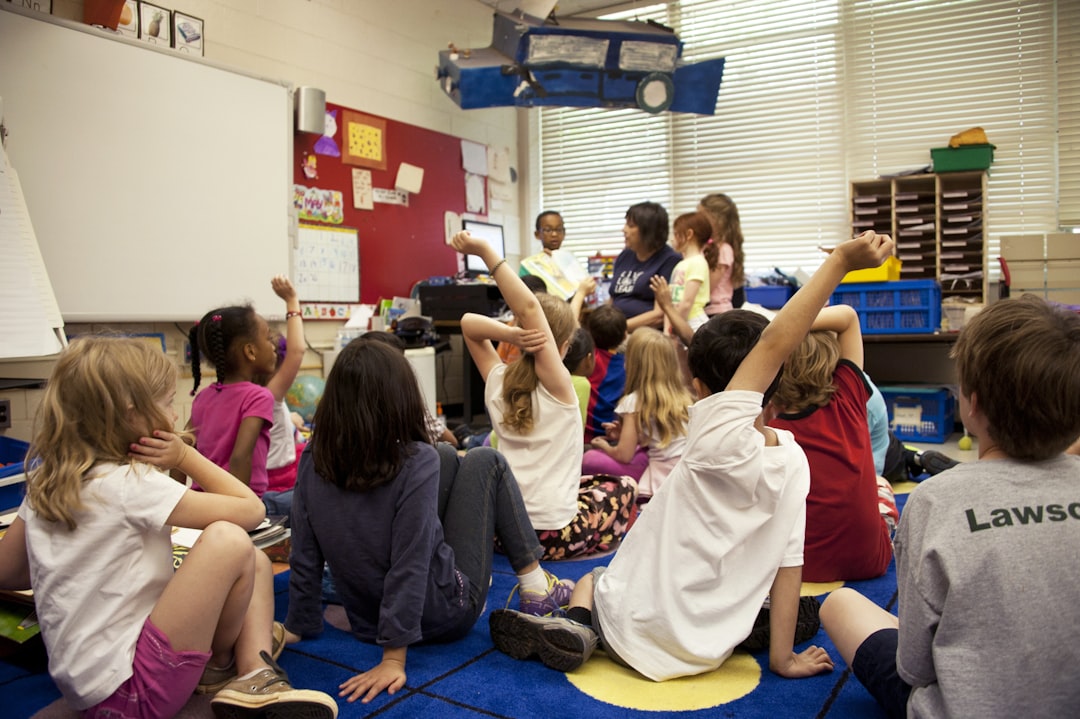Recognizing child misbehavior signs like shyness, mood swings, and unusual stories is crucial for preventing daycare abuse in San Francisco. Early education empowers children to identify dangers and report abuse, with sexual abuse law firms in California aiding in curriculum integration. Strict sexual abuse laws protect kids, and these firms ensure their enforcement, foster accountability, and promote well-being. Safe spaces require stringent safety protocols, staff training on child development, and age-appropriate areas to detect and prevent abuse. Regular caregiver training sessions further safeguard children under their care from potential sexual abuse.
In San Francisco, understanding child development is a critical tool in preventing daycare abuse. This comprehensive guide explores key strategies to safeguard our youngest residents, focusing on recognizing signs of misbehavior, leveraging early education for protection, and navigating California’s sexual abuse laws. We delve into creating safe spaces, training staff with prevention strategies, and the vital role of legal frameworks like those at a sexual abuse law firm in California. By integrating these measures, we can foster healthier, more secure environments for children.
Recognizing Signs of Child Misbehavior

Recognizing signs of child misbehavior is a crucial step in preventing daycare abuse in San Francisco. While children may exhibit various behaviors, some could indicate underlying issues or even potential sexual abuse. It’s essential for caregivers and parents to be vigilant and educate themselves on these signs. Behaviors such as excessive shyness, withdrawal from social interactions, or sudden changes in mood might suggest a child is experiencing distress or being victimized.
Moreover, a Sexual Abuse law firm California emphasizes that patterns like repetitive and unusual stories, fear of certain places or people, or physical indicators like unexplained injuries or rashes could be red flags. Paying close attention to these signs can enable caregivers to intervene early and provide the necessary support, ensuring children’s safety and well-being in their care environment.
The Role of Early Education in Protection

Early education plays a pivotal role in safeguarding children and preventing daycare abuse, especially sexual abuse, which is a growing concern in California. According to various studies, children who receive quality early learning experiences are better equipped to recognize and report potential dangers, fostering an environment of awareness and resilience. Educational programs designed with age-appropriate curriculum can teach young minds about personal boundaries, consent, and safe interactions, empowering them to make informed decisions.
In the context of San Francisco, where the population includes diverse cultural backgrounds, early education becomes a powerful tool for promoting cultural sensitivity and understanding. A sexual abuse law firm in California often emphasizes the importance of educating children about their rights and the signs of potential harm, ensuring they can identify and speak out against abusive situations. By integrating these vital topics into daycare curriculums, we can create a proactive approach to child protection, ultimately reducing instances of abuse and promoting a safer environment for all children.
Legal Frameworks: California Sexual Abuse Laws

In California, the legal framework regarding sexual abuse is stringent and aims to protect children, especially in institutional settings like daycares. The state has established comprehensive laws to prevent and address child sexual exploitation and abuse, with specific regulations targeting educational and care facilities. These laws mandate that caregivers, educators, and staff members undergo regular training on recognizing and reporting suspected abuse, ensuring a robust safety net for the young ones under their care.
A Sexual Abuse law firm in California plays a pivotal role in upholding these legal standards. Such firms assist in interpreting and enforcing the legislation, providing guidance to daycares to maintain safe environments. They also offer support to victims and their families, helping them navigate the legal process and seek justice. By understanding and adhering to these Sexual Abuse laws, daycares in San Francisco can foster a culture of safety, accountability, and respect for children’s well-being.
Building Safe Spaces for Children

Creating safe spaces is paramount in safeguarding children, a concept deeply understood by experienced child development experts and San Francisco-based sexual abuse law firms. Daycares must be designed with children’s well-being at the forefront, ensuring every corner is monitored and potential hazards addressed. This involves implementing stringent safety protocols, from secure entry points to age-appropriate play areas.
By fostering an environment that promotes trust and openness, daycares can better detect and prevent abuse. Educating both staff and parents about child development milestones and typical behaviors helps in identifying anomalies that may signal distress or exploitation. This proactive approach not only reinforces the physical safety of children but also lays a foundation for their emotional well-being, making them less vulnerable to potential sexual abuse, a serious concern addressed by California’s stringent sexual abuse laws.
Training Staff: Prevention Strategies

Training staff is a cornerstone in preventing daycare abuse, especially sexual abuse, in San Francisco and across California. Caregivers must be equipped with comprehensive knowledge about child development, including understanding typical behaviors and potential red flags. Regular training sessions should cover topics like age-appropriate boundaries, child protection laws, and how to respond to and report suspected abuse. These strategies create a safe environment by fostering awareness among staff members.
A Sexual Abuse law firm in California emphasizes that trained caregivers can better identify and address inappropriate interactions, ensuring the well-being of children under their care. By implementing robust training programs, daycare centers can build a culture of prevention, where every staff member plays a vital role in safeguarding kids from potential abuse.





